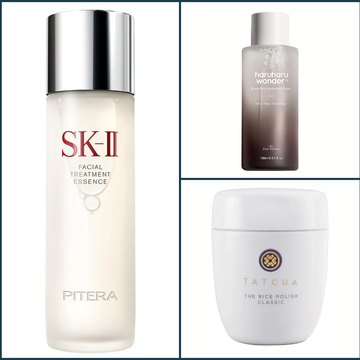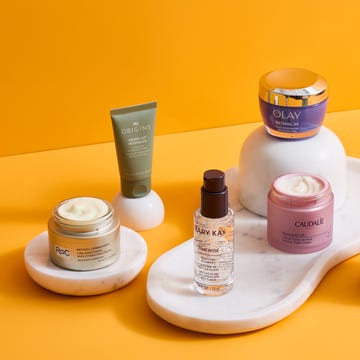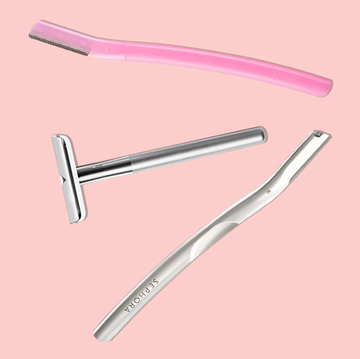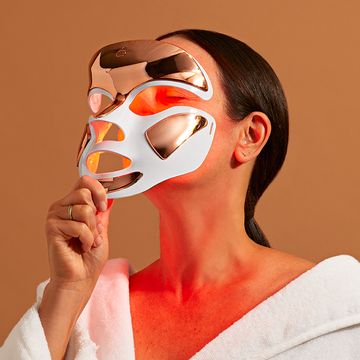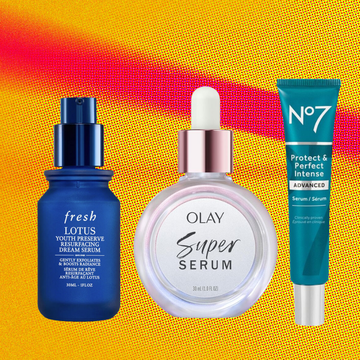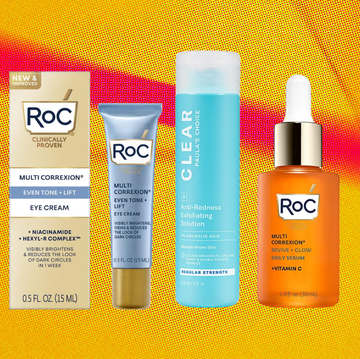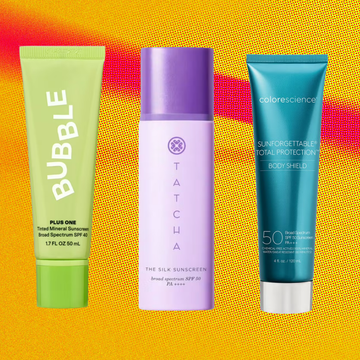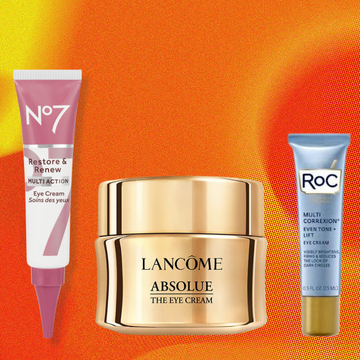Sometimes, the secret to better skin is sitting right in your kitchen. Saffron, a famous red spice, doesn't just make your food taste amazing: It can also boost skin's glow. It is known for improving skin hyperpigmentation and can even minimize itch, says Rishi Chopra, M.D., a board-certified dermatologist at UnionDerm Hamptons + Central Park. Research also shows that it offers some UV protection, he adds, though it should never be used in place of sunscreen.
Looking to implement the famed spice into your skincare routine and wondering about the benefits of saffron for your skin? Ahead, Dr. Chopra, Dr. Geeta Yadav, M.D., a board-certified dermatologist and founder of Facet Dermatology in Toronto, Canada and GH Beauty Reviews Analyst Chiara Butler share everything you need to know about saffron for skin, including the benefits, how often you can use it, potential side effects and product recommendations.
What is saffron?
The rich seasoning is derived from a flower and thought to be among the world's most expensive. "It's been used in traditional medicine as well as in food for centuries," says Dr. Yadav. One of the active components, crocin, is "responsible for saffron's yellow/orange color," says Dr. Chopra. Saffron also includes safranal, crocetin and carotene, Butler notes.
Benefits of saffron in skincare
Saffron can "be helpful for anyone, but especially those with aging and damaged skin," says Dr. Yadav. Here are some of the specific benefits you can enjoy once you implement saffron into your skincare routine:
Antioxidant and anti-inflammatory
The "main benefit of saffron for skin is its antioxidant power," explains Butler. This is because many of the chemical components that make up saffron are antioxidants, she adds, referring to this study. Research shows that these antioxidants can help protect cells from damage caused by UV exposure. So, there are also anti-aging properties to saffron, Dr. Chopra says, citing this study. Crocin provides "both anti-inflammatory and antioxidant benefits," adds Dr. Yadav.
Treat hyperpigmentation
Many people look to saffron to help lighten dark spots. Both derms agree that you can achieve this by using the ingredient. It's "great for improving hyperpigmentation and brightening the skin," says Dr. Chopra. Essentially, saffron "functions as a tyrosinase inhibitor, meaning it helps reduce the production of excess melanin, or skin pigment," explains Dr. Yadav, who cites this study. "This lessens hyperpigmentation."
Boost collagen
According to the same study as above, saffron "also inhibits collagenase, the enzyme that causes the deterioration of collagen," says Dr. Yadav. Plus, it also "promotes both collagen and hyaluronic acid synthesis," she adds. Because of this, it "implies that regular use of saffron-infused skincare can help promote firmer, brighter, plumper, healthier and more even-toned skin," she explains. This even "suggests a possible anti-wrinkle benefit," Butler shares.
How often can you use saffron in your skincare routine?
You can use it up to twice a day in your morning and evening skincare routine. "It's not a potent active and typically isn't something you can over-apply," Dr. Yadav explains.
Are there any side effects to using saffron in skincare?
Generally, "saffron is well tolerated," says Dr. Yadav. However, because it is part of a flower, "it may not be safe for those with pollen allergies," she adds. "If you have a pollen allergy or sensitivity, it is very important to patch test saffron before use."
Studies have shown that that exposure to high levels of saffron may cause miscarriage, so Dr. Yadav recommends "avoiding using it while pregnant or breastfeeding to be safe." Also, take note that saffron can stain fabrics yellow, Butler advises.
The best saffron skincare products to try
These skin saviors contain saffron and come recommended by our beauty experts.
Chiara (she/her) is a reviews analyst in the Beauty, Health and Sustainability Lab at the Good Housekeeping Institute, where she conducts hands-on testing of health and beauty products. She earned her bachelor’s degree in chemistry from Columbia University. Before joining GH in 2022, she worked as a cosmetic chemist, formulating skincare products for a variety of brands and learning to decode ingredient lists, evaluate ingredient efficacy and scrutinize product claims.







